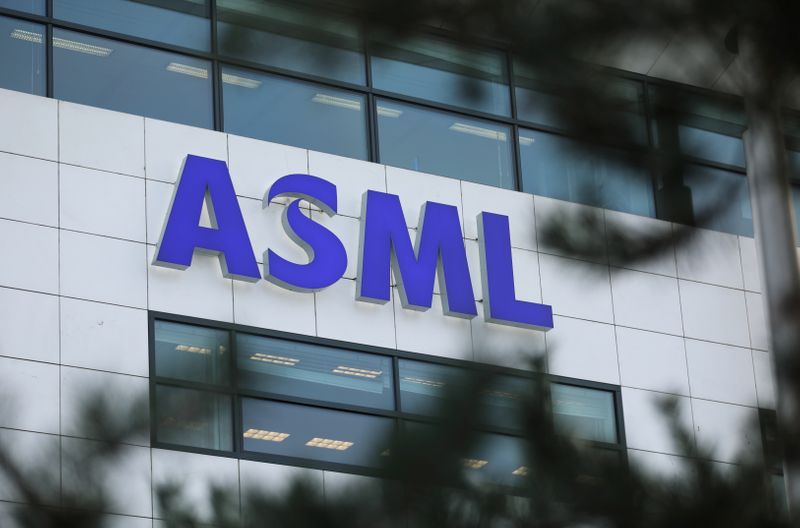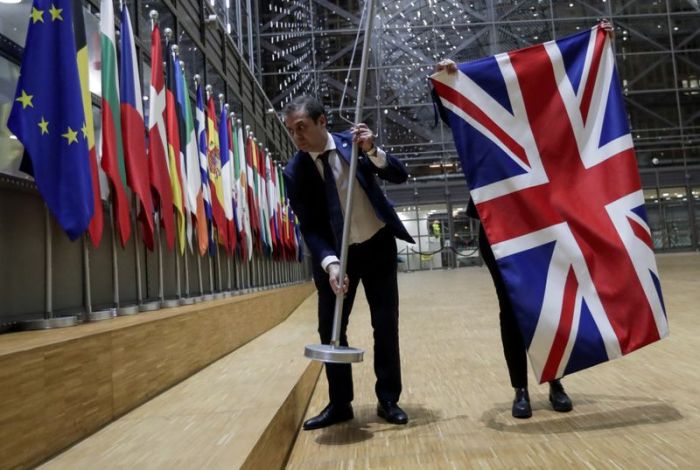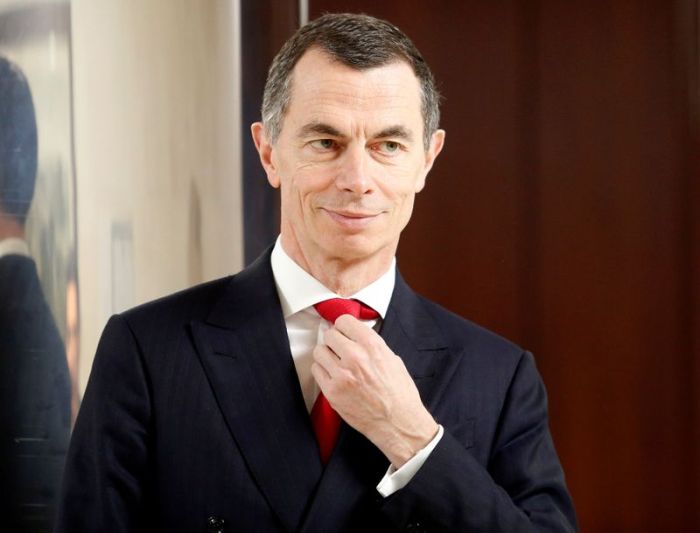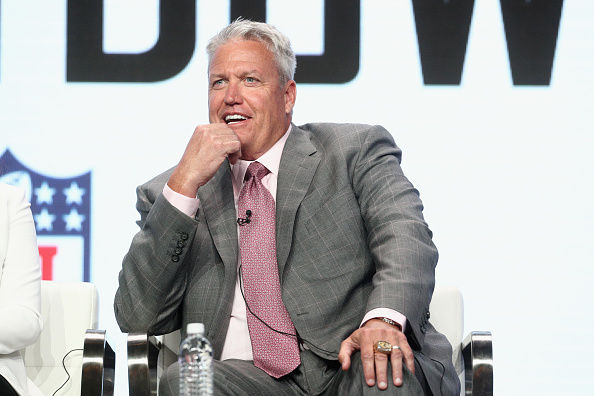AMSTERDAM (Reuters) – Semiconductor equipment maker ASML Holding NV <ASML.AS> sounded a note of caution over sales of its newest tools worth $200 million apiece on Wednesday, as it delivered better-than-expected earnings and forecast double-digit growth next year.
ASML is depending on the likes of chipmakers Taiwan Semiconductor Manufacturing Co Ltd <2330.TW>, Samsung Electronics Co Ltd <005930.KS> and Intel Corp <INTC.O> to sell its most advanced “EUV” or extreme ultraviolet, machines, which use energy beams to map out circuitry of computer chips.
Intel said in July it was six months behind on plans to make its next generation of chips.
ASML Chief Financial Officer Roger Dassen said the company would likely be “a few systems shy” of selling a targeted 35 of the machines this year, due to customers not being ready.
Dassen said the company will have capacity to sell 45-50 systems next year as planned, but said there are “uncertainties macro-wise, based on everything that is going on in the geopolitical environment,” a reference to US-China trade tensions.
The shares were down 0.9% at 341.1 euros at 0916 GMT.
“The company’s revenue growth guidance for next year may screen a bit soft versus consensus expectations,” said analyst Ruben Devos of KBC in a note.
Although ASML’s financial performance has not yet been hurt by U.S. restrictions on Chinese companies, it would be affected by a split in the supply lines for semiconductor production, which is highly integrated globally.
The Dutch company had already halted plans to sell its most advanced equipment to China after the U.S. government pressured the Netherlands not to grant export licenses under “dual use” military applications.
Last month, Washington asked U.S. equipment makers to seek a license to ship any equipment to SMIC, China’s biggest computer chip maker, over military concerns.
The new U.S. trade curbs on SMIC mean ASML must now apply for a license to sell parts to such customers when sending kit from the United States, Dassen said on Wednesday.
Still, the company raised its forecast for sales to Chinese customers to “a little over a billion” in 2020 from around 1 billion euros. Sales to China were worth 800 million euros in 2019 and the company expects it to remain a major growth market.
For the third quarter ended Sept. 30, the company’s net sales rose to 3.96 billion euros ($4.65 billion) from 3 billion a year ago, ahead of analyst estimates of 3.7 billion euros. Net profit rose to 1.06 billion euros from 627 million euros.
(Reporting by Toby Sterling; Editing by Sherry Jacob-Phillips and Elaine Hardcastle)
























